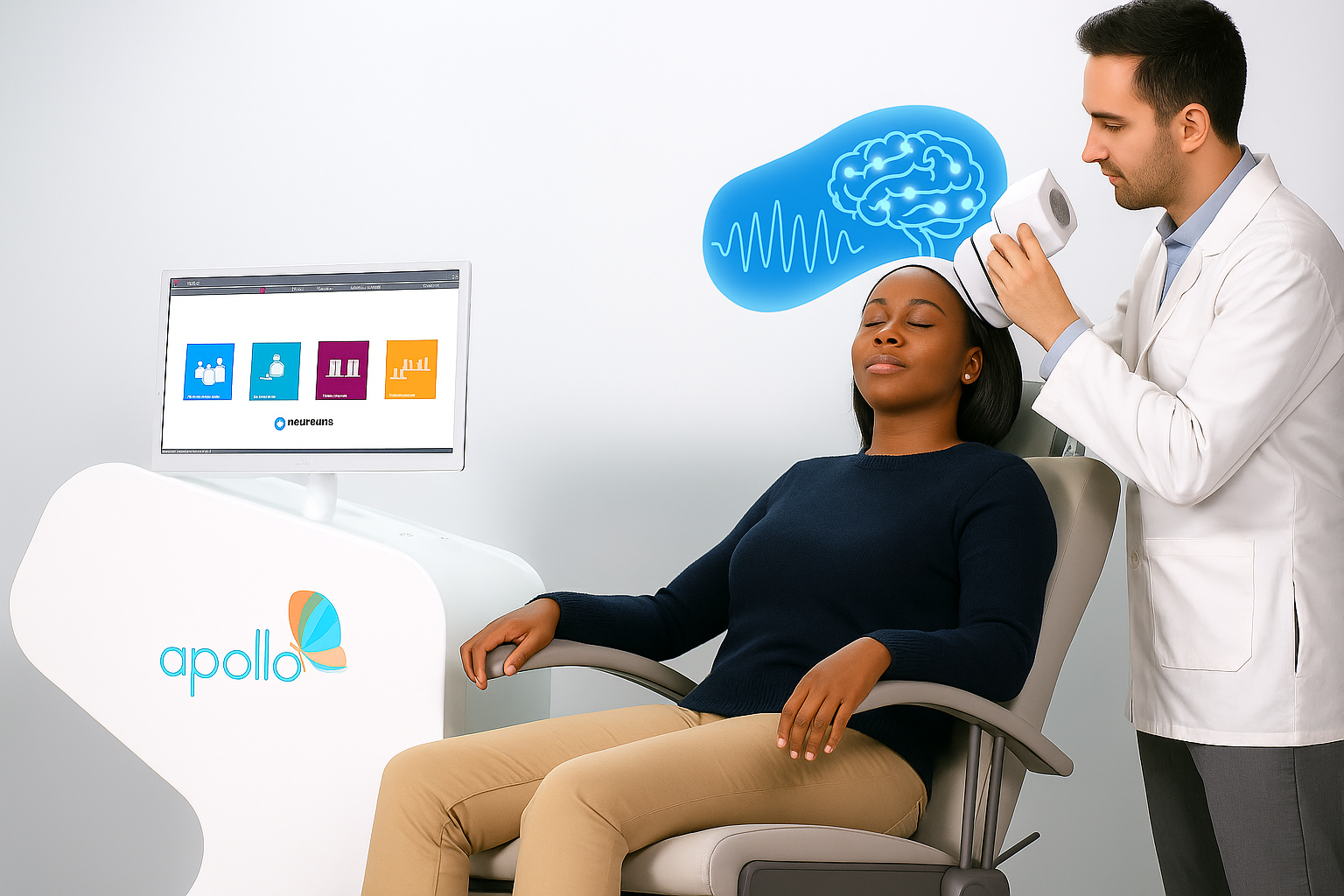
Transcranial Magnetic Stimulation (TMS) is widely recognized as a breakthrough treatment for various mental health conditions, particularly depression. But its potential for treating sleep disorders like insomnia is garnering increasing attention.
What is TMS and How Does it Work?
TMS is a non-invasive procedure that uses magnetic fields to stimulate nerve cells in the brain. By targeting specific areas, TMS can influence brain activity, which is often disrupted in mental health conditions and sleep disorders. For insomnia, TMS focuses on areas of the brain linked to sleep regulation, such as the dorsolateral prefrontal cortex.
The treatment is administered in a clinical setting, typically involving sessions that last 20-40 minutes over the course of several weeks. TMS is FDA-approved for depression and obsessive-compulsive disorder, but off-label uses, including for sleep disorders, are becoming more common as evidence of its efficacy grows.

What is the Success Rate of TMS for Sleep Disorders?
While TMS’s primary FDA-approved applications are not for insomnia, studies suggest promising results for its off-label use in treating sleep disorders. According to a 2020 study published in Sleep Medicine Reviews, patients receiving TMS for insomnia showed significant improvements in sleep quality and duration. Another study found that up to 60% of participants experienced meaningful relief from chronic sleep problems.
While these numbers are promising, it’s essential to note that individual results vary. Factors like the severity of the sleep disorder, the presence of coexisting conditions, and adherence to treatment schedules all influence outcomes.
Who Should Avoid TMS Treatment?
Although TMS is generally well-tolerated and considered safe, it’s not suitable for everyone. The following groups are advised to avoid or proceed with caution under the guidance of a TMS physician:
- Individuals with Metal Implants: The magnetic fields used in TMS can interfere with metallic implants in the head or body, such as cochlear implants, aneurysm clips, or pacemakers.
- People with a History of Seizures: TMS carries a slight risk of inducing seizures, making it unsuitable for individuals with epilepsy or a history of multiple seizures.
- Certain Neurological Conditions: Patients with conditions such as brain tumors or traumatic brain injury causing significant brain damage will likely need to avoid TMS.
Before starting TMS, a comprehensive evaluation by the TMS physician is crucial to determine its safety and suitability.
Can TMS Work Immediately?

TMS is not a quick fix. Unlike medications that might offer immediate relief for acute symptoms, TMS’s effects are cumulative. Most patients begin noticing improvements after 2-3 weeks of consistent sessions. For sleep disorders, gradual enhancement in sleep quality and duration is typical.
However, some patients report feeling more relaxed or experiencing minor sleep improvements after just a few sessions. This could be attributed to initial brain stimulation effects. Long-term benefits, such as achieving restorative sleep cycles, generally emerge after completing the treatment course.
Final Thoughts
For individuals struggling with insomnia or other sleep disorders, TMS offers a ray of hope, particularly when conventional treatments fall short. With promising success rates, a favorable safety profile, and increasing research, TMS is paving the way for innovative approaches to improving sleep health. Early intervention and a personalized treatment plan can make all the difference in reclaiming restful nights and a healthier, more balanced life.
Responsibly edited by AI
Other Blog Posts in
Animo Sano Psychiatry is open for patients in North Carolina, Georgia and Tennessee. If you’d like to schedule an appointment, please contact us.
Get Access to Behavioral Health Care
Let’s take your first step towards. Press the button to get started. We’ll be back to you as soon as possible.ecovery, together.





